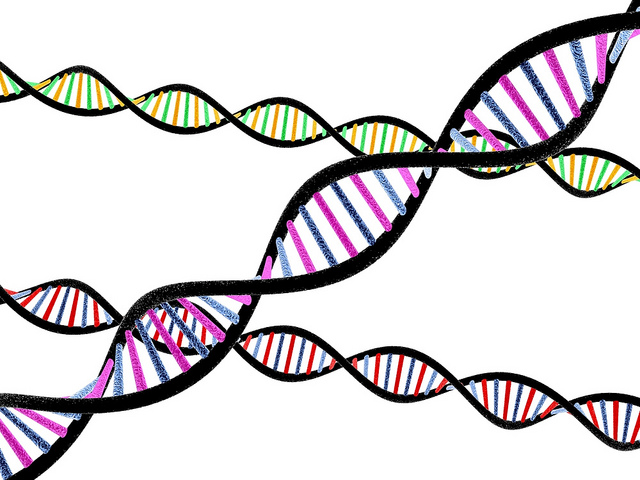



Mapping out Genetic Resistance to Bovine TB
A genetic solution to bovine tuberculosis (TB) could act as a lifeline to UK cattle farmers suffering from the disease, reports Lisa Guenther of Genome Alberta.Cattle producers in the United Kingdom are struggling to control bovine tuberculosis. But researchers at the University of Edinburgh’s Roslin Institute are working on a genetic solution to the problem.
Bovine TB is caused by a bacterium called Mycobacterium bovis. In 2010/2011, the disease cost the UK government £152 million. Between January and November 2013, over 30,000 U.K. cattle were slaughtered in the United Kingdom in an effort to control bovine tuberculosis, according to the U.K.’s Department for Environment, Food and Rural Affairs.

The disease can also infect people and wildlife. And bovines aren’t the only animals that were culled last year. Badgers suffer from the disease are a suspected vector, and so the government sanctioned a pilot cull last year in an attempt to rein in bovine TB. The badger culls have proven controversial with the public and scientific community, with some scientists saying that the cull likely did more harm than good (their reasoning is that fleeing badgers likely spread the disease).
And so the latest news from the Roslin Institute is welcome, even though it won’t solve the TB problem in the short term.
Previous work by Roslin Institute scientists indicated that some cattle might have genetic resistance to bovine TB. Building on previous studies, scientists then compared the genomes of over 1200 infected and healthy Holstein-Friesian cows. The cows were sourced from 146 dairy herds in Northern Ireland which had naturally been exposed to TB. Researchers looked for genetic variation in TB risk and tried to pin down specific genomic regions that contributed to the risk.
Ultimately, the latest study pinpointed several genetic signatures linked to TB resistance. Researchers estimated heritability of TB resistance was 21 per cent.
Professor Glass, lead researcher for the study, cautioned that genetic differences aren’t the only factors that determine whether an animal will contract bovine TB. Differences in the TB bacteria and environmental factors also affect susceptibility, Glass said.
But the study is a good starting point.
*
"If we can choose animals with better genotypes for TB resistance, then we can apply this information in new breeding programmes alongside other control strategies."
“If we can choose animals with better genotypes for TB resistance, then we can apply this information in new breeding programmes alongside other control strategies. It is hoped that can help us to more effectively control TB in cattle,” said Glass.
There is still plenty of work to be done in this field. For the purposes of this study, researchers excluded infected cattle that didn’t develop pathology, as well as infected cattle that quickly develop progressive disease and could become a latent source of infection. Plus some of the study results need to be replicated in other cattle populations.
And although the study indicates that genomic selection for TB resistance is possible, more research is needed to pick selection methods that are practical and feasible. And researchers need to figure out how the TB resistance trait relates to other economically important traits so it can be weighed with other breeding objectives.


